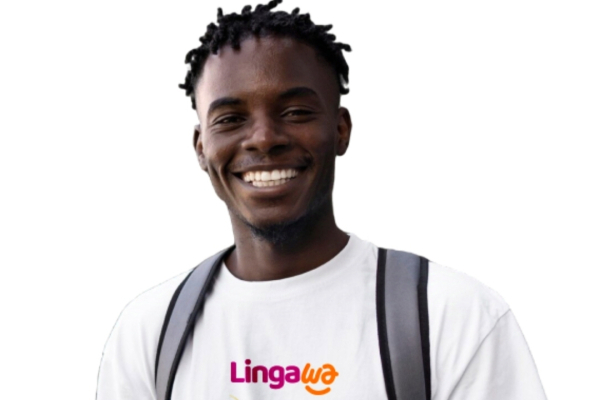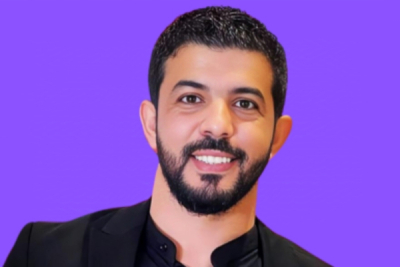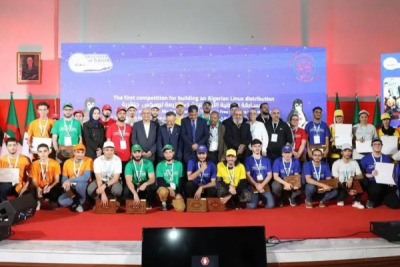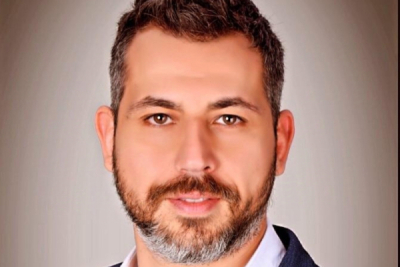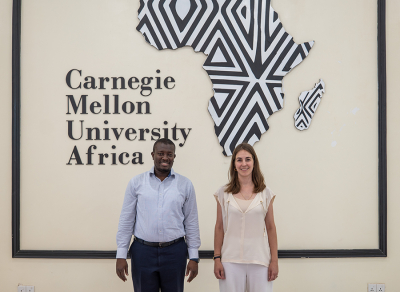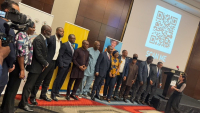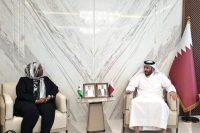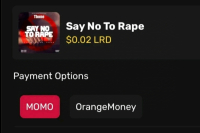Beyond Limits, an advocate for digital innovation, in partnership with the U.S. Consulate General Lagos, has unveiled the Beyond Limits Fellowship for Founders Cohort 3.0.
The 12-week program, running from January to March 2025, will equip 30 early-stage Nigerian startups with skills, mentorship, and resources to build scalable tech ventures.
Applications, open until November 29, 2024, will select startups from across Nigeria. The top three startups will receive $10,000 in resources to fuel growth.
Formerly known as TopSet, the startup has pivoted its focus to fully dedicate itself to this new venture. This strategic shift is paying off, as the company has successfully secured funding to support its growth.
Lingawa is a digital solution developed by a Nigerian start-up, offering users the chance to learn African languages—specifically Igbo and Yoruba—through engaging and immersive online courses. The Lagos-based company was founded in 2022 by Frank Williams, Yvonne Williams, and Uche Azinge. It also operates offices in London, UK, and New York, USA.
In 2023, Lingawa integrated artificial intelligence into its platform to enhance the quality of its services. "AI is already at the core of our student-tutor matching system, but behind the scenes, we’ve started developing our own large African language models. The goal of these AI models is to ensure that between lessons, students can effectively complete homework and practice," said Frank Williams.
On Thursday, November 21, the start-up announced a $1.1 million funding round. The funds will support the development of a mobile app, the addition of more African languages to its curriculum, and the company’s expansion into other global regions. Frank Williams aims to introduce Zulu and Swahili to the platform by the first quarter of 2025. However, he acknowledges challenges in recruiting tutors, most of whom are based in Africa.
"We quickly realized there was a gap in language teaching expertise. What we do is identify native African language speakers with high potential and train them to become world-class language teachers. This includes soft skills training, learning science, and ensuring that lessons are engaging and fun," Williams added.
While waiting for the mobile app’s release, users can access Lingawa’s platform via a web browser. Registration is simple: users can either provide personal details or log in through their Google account. Once signed up, they can choose a language to learn and connect with a tutor. The program features five proficiency levels—beginner, elementary, intermediate, expert, and advanced—and offers various subscription packages. For instance, a weekly plan costs $18 for a single student or $22.50 for two learners.
“Our students begin speaking from their first lesson and often engage in comfortable conversations within six months to a year. Mastery depends on your commitment to learning and practicing,” the company explained.
Since its launch, Lingawa has seen significant growth, boasting approximately 3,000 learners and around 100 tutors.
Adoni Conrad Quenum
A visionary leader, he has spearheaded numerous initiatives in the fields of digital technology and innovation. He stands out as a key figure driving Algeria’s digital transformation.
Mechta Mourad (photo), an Algerian serial entrepreneur, holds a degree in Radio, Television, and Digital Communication from the University of Algiers, earned in 2011. He is the founder and CEO of Guiddini, a company specializing in the digital transformation of small and medium-sized enterprises (SMEs).
Established in 2009, Guiddini supports businesses by launching e-commerce platforms, online booking systems, e-invoicing solutions, and institutional websites. With a portfolio of over 300 clients and partners, the company plays a pivotal role in advancing digital commerce in Algeria.
Since 2023, Guiddini has hosted the Algeria Fintech & E-commerce Summit, a flagship event bringing together national and international experts. This summit fosters discussions on fintech and e-commerce trends while creating collaboration opportunities between financial institutions, startups, citizens, and government entities to address sector challenges.
Beyond Guiddini, Mourad founded Génération Digitale Algérie in 2018, a firm dedicated to organizing informational caravans and events focused on digital and economic transformation. In 2019, he launched Algeria Innov, a national conference uniting Algerian startups around innovation.
In 2022, he co-founded Fintech Technologie Groupe (FTG), an incubator for fintech projects. By 2024, he expanded his ventures with Efawtara, an online billing platform designed to help businesses manage inventory and automate invoices, streamlining administrative operations.
Melchior Koba
In an increasingly digital world, countries are striving to bolster their technological capabilities. Local solutions, particularly free and open-source software, play a crucial role in this dynamic.
On Tuesday, November 19, Algerian Minister of Higher Education and Scientific Research Kamel Baddari presided over the official launch of Algeria's operating system at the Dr. Moulay Tahar University in Saïda. The Linux-based system marks a milestone in the country’s digital modernization efforts and the enhancement of its technological capabilities.
“This fully Algerian system is the outcome of collaborative work between students and software researchers from multiple universities. This Linux distribution, blending user-friendliness with robust security, will enhance computer performance and safeguard our information systems. It also lays the groundwork for an open technology economy by providing a strong foundation for the development of numerous software startups,” Baddari said during the ceremony.
The initiative is part of a broader national strategy to modernize Algeria’s universities and position them as hubs for technological innovation. Spearheaded by Dr. Moulay Tahar University, the project involved a nationwide competition, with 10 university teams tasked with designing the operating system. This effort mirrors other recent technological advances in Algeria, such as the launch of the country’s first electric car in April 2023, developed by the Industrial Technology Research Center (CRTI).
The launch coincides with robust global growth in the open-source software market. According to a 2024 report by research firm GitNux, the global open-source market, valued at $21.7 billion in 2021, is projected to reach $66.84 billion by 2026. Additionally, open-source software adoption reportedly saves companies around $60 billion annually worldwide.
These figures underscore the significance of Algeria’s project, which could strengthen the country’s position in the global open-source market while fostering local innovation. The Algerian operating system, designed to meet the demands for cybersecurity and efficiency, could play a pivotal role in the country’s digital transformation while showcasing the talents of its young researchers and entrepreneurs.
Samira Njoya
He has extensive experience in the insurance and retail sectors. He leverages technology to help Egyptians find the insurance coverage best suited to their needs.
Abbas Jammal (photo) is an Egyptian entrepreneur and the founder and CEO of Mal Bazaar, a tech startup specializing in insurance and finance.
Launched in 2022, Mal Bazaar provides an online platform that allows users to search, compare, and purchase insurance and financial products with ease. Partnering with a range of financial institutions and insurance companies, the platform helps individuals and businesses make informed decisions. Its offerings include tailored solutions for health, auto, life, and property insurance. The company operates under the supervision of the Financial Regulatory Authority and is officially registered as an insurance brokerage firm.
Jammal’s entrepreneurial journey began long before Mal Bazaar. In 2003, while still a student at the American University in Cairo (AUC), he founded the Entrepreneurs’ Society, an organization aimed at fostering entrepreneurial spirit among young Egyptians. He served as its president until 2005.
Jammal earned a bachelor’s degree in Business Administration and Economics in 2004 from the AUC. He furthered his education at the London Business School, obtaining an MBA in 2011. Additionally, he holds a certification from the Chartered Insurance Institute (CII).
His professional career began in 2004 at Good News Group, a company focused on digital solutions, where he worked as a marketing manager. In 2005, he joined Procter & Gamble Egypt as an assistant brand manager, eventually rising to the position of deputy brand manager for the Middle East region.
Melchior Koba
Sub-Saharan Africa has one of the lowest internet penetration rates globally. This limited connectivity underscores the importance of locally driven solutions, such as the Upanzi Network, which aim to develop accessible, culturally relevant technologies tailored to African contexts.
The Carnegie Mellon University Africa (CMU-Africa) announced, on November 20, the expansion of a groundbreaking initiative aimed at fostering secure, inclusive, and resilient digital public infrastructure across Africa.
CMU-Africa’s director, Conrad Tucker, emphasized the importance of local context, stating, “There are no one-size-fits-all solutions for Africa. Collaboration among researchers from diverse regions is essential to create tailored digital solutions.”
Launched in 2021 at CMU-Africa’s Kigali campus, the Upanzi Network, an Africa-based collaboration of engineering research labs, has pioneered research in critical areas such as digital identity, payments, cybersecurity, artificial intelligence, and data governance. Building on this foundation, the initiative is now partnering with leading universities across the continent, including Al Akhawayn University in Morocco, the University of Botswana, and the University of the Witwatersrand in South Africa.
Each partner lab has been awarded a one-year seed grant to support research tailored to specific regional needs. In Morocco, Al Akhawayn University is establishing a lab to enhance governance through digital transformation, prioritizing efficiency, transparency, and inclusivity in public services. In Botswana, researchers at the University of Botswana are utilizing IoT technologies to address challenges in farming, such as animal health and water management, aiming to improve agricultural productivity and engage youth through targeted workshops.
Meanwhile, the University of Witwatersrand in South Africa is focusing on multilingual learning technologies to overcome social and educational barriers while advancing digital literacy across diverse linguistic contexts.
The network’s researchers will convene this week at a symposium focusing on digital identity and cybersecurity, underscoring the initiative’s commitment to addressing Africa’s most pressing digital challenges.
The United Nations Development Programme (UNDP) highlights digital public infrastructure (DPI) as a key enabler of digital transformation and efficient public service delivery. Properly implemented, DPI supports national priorities and accelerates progress toward Sustainable Development Goals (SDGs). Governments, donors, private entities, and civil society have a shared opportunity to shape inclusive and impactful digital ecosystems.
The Upanzi Network’s initiatives address critical challenges in digital infrastructure and human development, ensuring Africa’s digital future is inclusive, resilient, and innovative. This expansion represents a significant stride toward empowering Africa’s socio-economic development through localized, innovative, and inclusive digital infrastructure.
Hikmatu Bilali
Brij Technologies Inc. unveiled the BrijX Currency Swap B2B Digital Platform on Tuesday November 19. This will enable real-time mobile money currency swaps between Ghanaian Cedi and Nigerian Naira without traditional foreign exchange intermediation.
Supported by the U.S. Embassy in Ghana and licensed by the Bank of Ghana, BrijX is undergoing final integration with Mobile Money Limited Ghana and G-Money Financial Services. The platform is expected to go live before Christmas 2024.
He is passionate about leveraging technology to improve people's lives. He develops innovative solutions designed to help businesses optimize the management of their operations.
Avi Maja (photo) is a South African tech entrepreneur and co-founder of Breaze Delivery, a technology company providing delivery services to small and medium-sized enterprises.
Founded in 2021 by Avi Maja and Braden Snyman, Breaze Delivery specializes in on-demand and last-mile delivery solutions. The company partners with clients across various industries, including ghost kitchens, grocery stores, liquor shops, e-commerce platforms, and retailers. Leveraging advanced technology, the platform enables users to track deliveries in real-time.
The company sets itself apart with its use of scooters equipped with mobile advertising panels, allowing clients to run innovative marketing campaigns. Additionally, Breaze Delivery offers turnkey e-commerce solutions, customizable eco-friendly packaging, and tailored delivery options.
Avi Maja graduated from the University of Witwatersrand in 2014 with a bachelor’s degree in Politics, Philosophy, and Economics. In 2016, he joined Cape Town-based development firm Tiger Bytes as an operations consultant before being promoted to Operations Manager in 2017.
He later moved to Quintica, a company specializing in technology deployment, where he worked as a business analyst focusing on innovation and strategy. In 2019, Avi joined WorkWide Mobile, a South African tech firm providing mobile workforce management tools. He served as a senior business analyst before becoming a mobility technical specialist in 2021.
Melchior Koba
The Djiboutian government is prioritizing the digital economy as a key driver of its development strategy. To ensure that this sector contributes fully to the country's growth, the government is also heavily focused on securing its national cyberspace.
Mariam Hamadou Ali (photo, left), Djibouti's Minister of Digital Economy and Innovation, conducted an official visit to Qatar to discuss cybersecurity, according to the ministry's social media posts on Tuesday, November 19. During her visit, she met with Abdulrahman bin Ali Al Farahid Al Malki (photo, right), head of Qatar's National Cybersecurity Agency. Their discussions focused on the issue of cybersecurity and explored "ways to develop and strengthen the partnership in this field," as reported by the Qatar News Agency.
This visit aligns with the priorities outlined by Djibouti's President, Ismaïl Omar Guelleh, during the national political assembly in August. The president emphasized the crucial role of the digital and telecommunications sectors in the country’s development. It also comes ahead of the imminent launch of Djibouti's national cybersecurity strategy, a project underpinned by the formation of strategic alliances to bolster the nation’s defenses against cyber threats.
According to the Global Cybersecurity Index 2024 published in September by the International Telecommunication Union (ITU), Djibouti is a Tier 4 country, with a score of 31.47 out of 100. This category, as defined by the ITU, includes countries demonstrating a foundational commitment to cybersecurity through government-led actions involving evaluation, establishment, or implementation of generally accepted cybersecurity measures in at least one pillar or across several indicators or sub-indicators.
In contrast, Qatar stands as a global leader in cybersecurity, earning a perfect score of 100 in the same ITU index. For Djibouti, a partnership with Qatar presents a significant opportunity. Potential benefits include the exchange of expertise, sharing of intelligence on emerging cyber threats, enhancement of digital infrastructure, and targeted investments. Such collaborations could play a pivotal role in building a resilient and robust cybersecurity ecosystem in Djibouti.
Adoni Conrad Quenum
Across Africa, making a sustainable living from art is often a struggle, and Liberia is no exception. A local tech entrepreneur has decided to take on that challenge through technology.
Prime Music Store, a digital platform developed by a Liberian startup, offers users the ability to stream and listen to songs by Liberian artists, regardless of genre or popularity. Founded in 2023 by Losine Victory Sanyon, Jr., the startup is headquartered in Monrovia and aims to revolutionize the music industry in the country.
“My company seeks to address the challenges faced by emerging music creators,” explains Sanyon, Jr. “Our goal is to offer a platform that empowers Liberian artists at the starting point of their careers. We’ve implemented transparent royalty structures to ensure artists receive a larger share of revenue, providing them with financial freedom to focus on their music without worrying about financial difficulties.”
Prime Music Store operates through a mobile app available on both iOS and Android, with over 100 downloads reported on the Play Store. After downloading the app, users can create an account by providing some personal information, granting them access to the platform’s music catalog.
Based on their preferences, users can download and listen to a variety of songs from their favorite artists for a fee. To do so, they must first load funds into their digital wallet, enabling them to purchase songs directly on the platform. From their dashboard, users can view their account balance and personal catalog. Downloaded songs can be organized into playlists within the app and played offline.
In 2024, Prime Music Store garnered recognition by winning third place in Liberia at the Orange Social Venture Prize for Africa and the Middle East.
Adoni Conrad Quenum
More...
He aims to simplify the marketing of farmers' products. To achieve this, he leverages technology to provide them with broader access to new markets.
Shadrack Kubyane (photo) is a South African tech entrepreneur, co-founder, and CEO of eFama App, a digital platform designed to connect farmers with commercial buyers and consumers.
Launched in 2022, eFama aims to enhance food security through digital innovation. The app enables farmers to sell fresh produce and meat directly to individual consumers and professional clients, including restaurants, retailers, and hotels.
eFama is an initiative of Coronet Blockchain, a start-up co-founded by Kubyane. The platform leverages blockchain technology to optimize the supply chain end-to-end. It connects international manufacturers with African small and medium-sized enterprises (SMEs), while also providing business formalization tools and quality authentication systems for products.
Kubyane also serves on the board of Coronet48, a media platform dedicated to showcasing African start-ups. Each year, Coronet48 highlights 1,000 startups to watch, sharing their stories, the journeys of their founders, and the impact they are making.
Kubyane holds a bachelor's degree in Media and Communications, earned in 2005 from the University of KwaZulu-Natal. In 2007, he joined South Africa's Government Employees Medical Scheme (GEMS), where he managed key client portfolios and national sales. Concurrently, he served as National Business Development Manager at Deloitte.
From 2010 to 2019, he was Director of Market Entry and Expansion at Gershon South Africa, a business services and consulting firm. Between 2019 and 2020, he held various leadership roles in business development across public and private sector organizations.
Melchior Koba
As digital adoption rises across Africa, so does cybercrime, threatening national security. Tackling these threats is essential for protecting digital economies and fostering sustainable growth.
Zambia announced on November 19 that it is strengthening its defenses against cybercrime through a partnership with the International Telecommunication Union (ITU). This collaboration aims to enhance digital security by equipping prosecutors and law enforcement with advanced skills to tackle emerging cyber threats.
Technology and Science Minister Felix Mutati, speaking through his representative, director of communication and digital technologies, Milner Makuni emphasized that the escalating cyber threats demand continuous professional training and collaboration. Equipping law enforcement with skills in digital forensics and AI-driven tools for threat detection will create a safer cyber environment for citizens and businesses alike.
The event, hosted in collaboration with the International Telecommunication Union (ITU) and the Zambia Information and Communications Technology Authority (ZICTA), highlighted the urgency of addressing rising cybercrime incidents.
Key initiatives announced include training and reskilling programs to equip prosecutors and stakeholders with expertise in digital forensics, electronic evidence management, and predictive analysis technologies. Legislative enhancements are also underway, with ongoing revisions to the Cyber Security and Cyber Crimes Act to ensure a robust and adaptive legal framework.
ITU representative Annrita Ssemboga praised Zambia’s proactive role in the Global Digital Compact and commended its efforts to advance cybersecurity on the continent. ZICTA Acting Director-General Engineer Collins Mbulo highlighted the growing scope of digital crimes, urging regulators and law enforcement to remain vigilant.
In 2021, the Zambia Computer Incident Response Team (ZM-CIRT) recorded over 10.7 million cyberattacks, including mobile money scams, social media hijacking, and fraudulent online schemes. Between 2020 and the second quarter of 2022, the financial sector lost over K150 million, with K6 million attributed to pyramid schemes. These figures underscore the growing threat of cybercrime in Zambia.
This initiative strengthens Zambia's digital resilience, fostering economic opportunities while protecting its citizens and businesses from escalating cyber threats. By aligning with global standards and leveraging advanced technology, Zambia is setting a benchmark for cybersecurity in the region, essential for long-term socio-economic stability.
Hikmatu Bilali
The National Communications Authority (NCA) of Ghana, in collaboration with the Ministry of Communications and Digitalisation and mobile network operators (MNOs), is negotiating with Gambian stakeholders to implement the ECOWAS Free Roaming initiative.
The ongoing talks, held from November 19 to 21, 2024, are expected to result in a Memorandum of Understanding (MOU). This effort will lower telecommunications costs for travelers between Ghana and The Gambia.
Ghana has established ECOWAS roaming agreements with Côte d’Ivoire, Benin, and Togo, which provide local rates for calls and SMS, free reception of local and international calls, and internet access priced at local rates.
Ghana to Establish ICT Lab in Bouya Community to Boost Digital Inclusion
The Minister of Communications and Digitalisation Ursula Owusu-Ekuful announced, on November 18, plans to establish an Information and Communication Technology (ICT) lab in Bouya Community. This initiative aims to bridge the digital divide and enhance ICT literacy among residents.
The ICT lab will provide residents with access to digital skills training, e-learning platforms, and online resources, creating opportunities for education, entrepreneurship, and global connectivity.
The project aligns with the government’s broader vision of leveraging technology to drive innovation and economic progress across Ghana.



